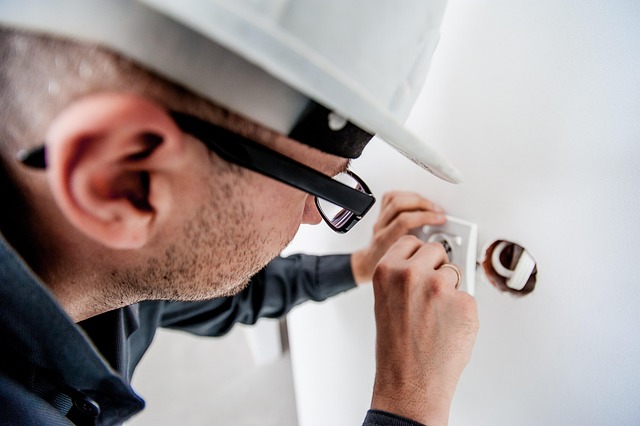Fuses and circuit breakers are vital for electrical system safety, with fuses protecting against short circuits and overcurrent, while circuit breakers prevent overload. When replacing old fuses, a licensed electrician is essential for assessment, recommending advanced circuit breaker alternatives, ensuring proper wiring, and addressing transition challenges. Always consult an electrician for safe and effective fuse-to-circuit-breaker replacement.
Looking to upgrade your home’s electrical safety? It’s time to consider replacing old fuses with modern circuit breakers. This guide breaks down the essentials, from understanding the differences between these components—fuses are reliable but have limitations, while circuit breakers offer enhanced protection and flexibility—to a step-by-step process for an electrician to seamlessly install modern circuit breakers, ensuring your peace of mind and home’s safety.
Understanding Fuses and Circuit Breakers: A Basic Comparison

Fuses and circuit breakers are both critical safety components in electrical systems, but they serve distinct purposes. Fuses protect circuits by interrupting the flow of electricity when a fault is detected, like a short circuit or overcurrent. Once triggered, a fuse blows, preventing further current flow and potential damage. Circuit breakers, on the other hand, act as automatic switches designed to prevent overloads. They can detect excessive current and trip, disconnecting the circuit until the problem is resolved. This mechanism makes them more versatile than fuses, allowing for easier reset and continuous use after a fault.
When it comes to installation or replacement tasks, an electrician plays a vital role. Old fuses should not be simply replaced with new ones without considering modern alternatives like circuit breakers. Electricians can assess the electrical system, recommend suitable replacements, and ensure proper wiring to meet safety standards. They also have the expertise to handle any challenges that may arise during the transition from traditional fuses to advanced circuit breakers.
– What are fuses?

Fuses are essential safety components in electrical systems, designed to protect circuits from overcurrent conditions. They function as a one-way street for electric current, allowing it to flow freely under normal conditions but interrupting the circuit abruptly if the current exceeds a predetermined limit. This protective mechanism prevents excessive heat and potential fires caused by overloaded wiring. An electrician is often tasked with replacing old fuses, which can become fragile over time and fail, leading to power outages or even electrical hazards.
Modern circuit breakers serve as advanced alternatives to traditional fuses. They offer improved safety features and convenience. Circuit breakers use a mechanical switch to interrupt the circuit when necessary, providing a more reliable and responsive protection mechanism than fuses. Electricians often prefer circuit breakers for their ability to reset after tripping, making them more versatile for various electrical installations.
Upgrading from old fuses to modern circuit breakers is a smart move for any homeowner or electrician. This simple switch offers enhanced safety, easier maintenance, and more efficient power management. With circuit breakers, you gain protection against overloads and short circuits, ensuring the electrical systems in your home are reliable and secure. So, when it comes to keeping your loved ones safe and your property protected, why not trust a professional electrician to make this easy transition?
